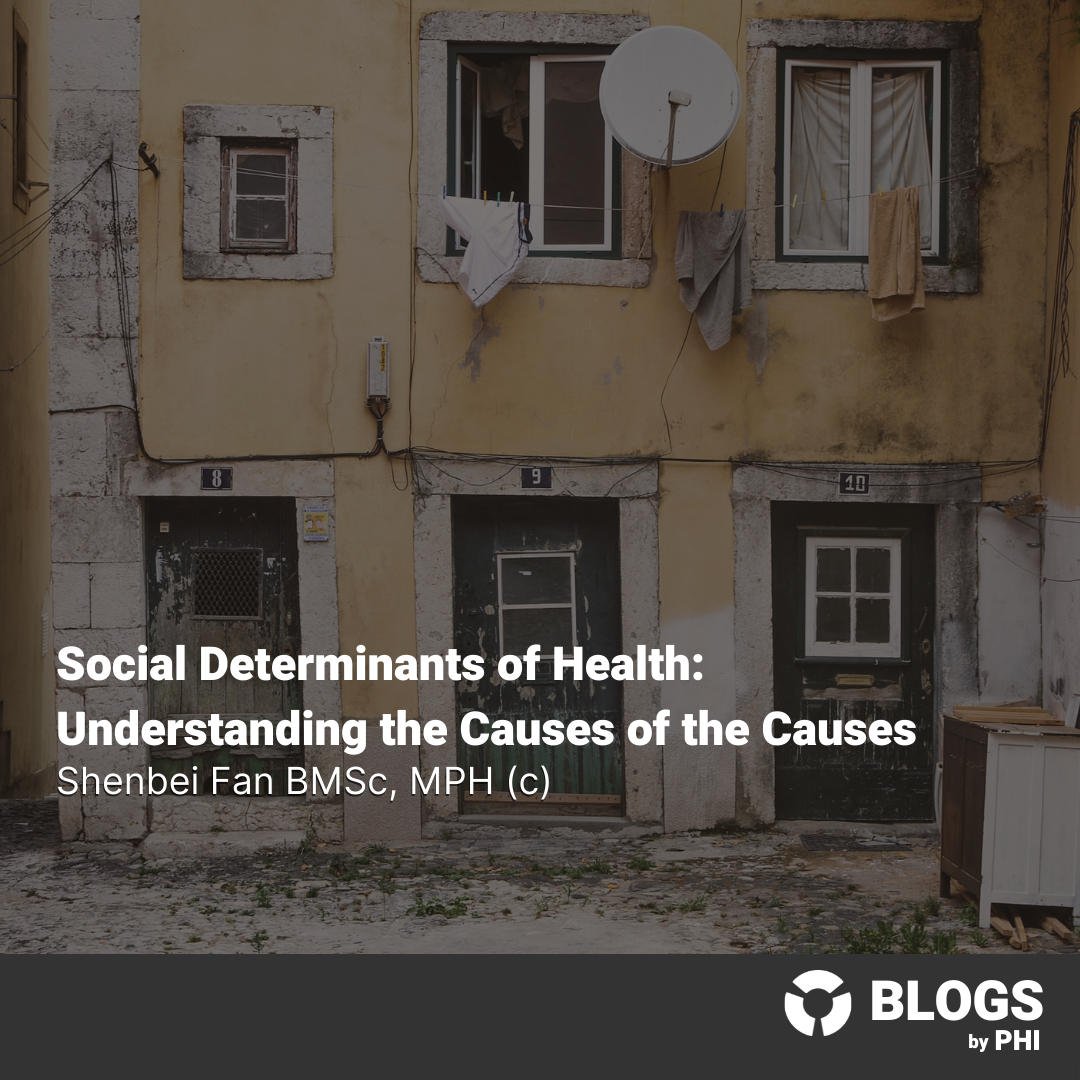
8/1/2022
“Addressing SDH appropriately is fundamental for improving health and reducing longstanding inequities in health, which requires action by all sectors and civil society.”
– World Health Organization
Contemporary discourse commonly frames the root causes of good or poor health as a primarily biomedical phenomenon. We are told that it is the intersection of diet, lifestyle, genetic, and environmental elements that determines how susceptible we are to a given disease. Indeed, the common narrative holds that if we eat well, sleep well, exercise well, and are fortunate to be born into a “good” family, we should not worry about the prospect of poor health.
Things are not quite so simple in reality. Consider that we live in a society marked by a stark stratification in the way resources are distributed. Some are better off; others are worse off. Some have ready access to tools and strategies that can help them maintain good health; others have very limited access.
This is why it is important to acknowledge health as not solely a biomedical phenomenon, but a sociological phenomenon as well. In this episode, the PHI team examines the ongoing COVID-19 pandemic from a social determinants perspective, narrowing in on the need to acknowledge long-standing racial disparities in health outcomes at a population level.
The World Health Organization defines social determinants of health (SDH) as the aggregate of economic, political, and institutional systems and forces shaping the conditions in which individuals live, grow, and reproduce.
While income or financial status is often considered the primary benchmark of social class and attainment, it is important to recognize that there are a multitude of other elements contributing to disparities in the social landscape.
Education, for example, is not only a good predictor of income but also a crucial measure of the extent to which individuals are likely to engage in health-seeking behaviour. In a similar vein, the quality of early childhood development can influence the formative experiences of individuals, and by extension, their perspectives and attitudes toward health later in life. Poor housing conditions and food insecurity can also contribute to less-than-ideal health outcomes due to the multitude of physical and emotional stressors that accumulate in these circumstances. In addition, the presence of one or multiple disabilities can cripple individuals’ physical, emotional, and financial means to maintain an optimal state of health.
The ongoing pandemic, not to mention socio-political turmoil in the Western world surrounding the George Floyd incident in June 2020, has shed light on the role of race as an important SDH.
In Canada, Black and Indigenous individuals are over-represented among those of low socio-economic status (SES), and by extension, those affected by the COVID-19 virus (Public Health Agency of Canada, 2021). Compounding this inequity is the disproportionate representation of racialized individuals, and especially women, in occupations deemed essential. These essential occupations often involve highly precarious work that place employees at a heightened risk of contracting the virus.
Within Indigenous communities, the paucity of adequate housing has perpetuated a dire situation in which it is common for families to reside in cramped, squalid conditions with little opportunity to exercise physical distancing. On top of this, Indigenous territories are often situated in isolated locations with few educational, financial, or material resources that can help individuals make informed decisions to prevent the spread of the virus.
It is also important to acknowledge that racial minorities are often disadvantaged from a cultural and linguistic point-of-view, and that many of these individuals are limited in their capacity to effectively utilize medical and other health services or follow public health guidance due to difficulties in communicating in English or French.
The existence of health disparities at the population level must not be addressed solely from a biomedical standpoint. If policymakers and other stakeholders are to craft effective public health programs, they must embrace a sociological approach that takes into account a multitude of economic, political, and institutional barriers that stand in the way of achieving an equitable system in which all individuals, regardless of their socio-economic circumstances, are afforded the opportunity to pursue good health.
Written by: Shenbei Fan BMSc, MPH (c)
Public Health Agency of Canada. (2021). CPHO Sunday edition: The impact of COVID-19 on racialized communities. Government of Canada. Retrieved October 23, 2021, from https://www.canada.ca/en/public-health/news/2021/02/cpho-sunday-edition-the-impact-of-covid-19-on-racialized-communities.html.
World Health Organization. (n.d.). Social Determinants of Health. World Health Organization. Retrieved October 16, 2021, from https://www.who.int/health-topics/social-determinants-of-health#tab=tab_1.